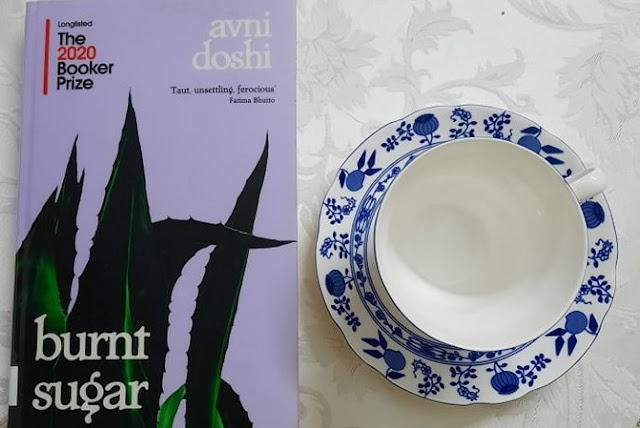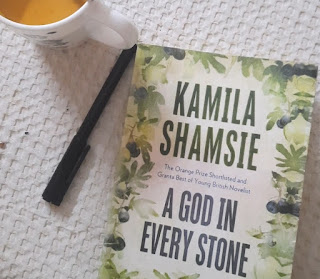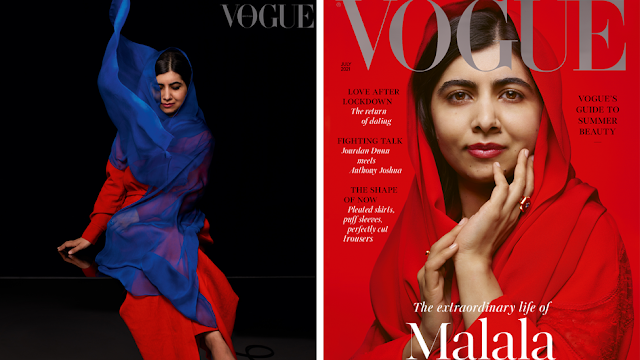Reading: Avni Doshi's 'Burnt Sugar' (2020)
 |
| Photo my own |
'If feeding is a form of love, eating is a kind of submission'
Motherhood and nourishment usually form part of one thought. Biologically and socially we have internalized this connection to the point that its disruption disturbs. Reading Doshi made me realise this: we find it almost impossible to romanticise a distant mother. A mother who is abusive, dismissive, and selfish rarely goes unpunished in literature when she is depicted at all. On the other hand, we love our bad fathers. The more distant and troubled, the more romantic and bittersweet. Tara tastes all bitter, and because she is so inextricably bound to her daughter Antara ('Un-tara', the opposite of Tara, as Antara explains in the first person), the pair are consumed by each other, always poised on the brink of abandonment and the threat of emptiness.
Among many other things, Burnt Sugar is a novel obsessed with consuming and not consuming. It is about being developmentally starved of love, affection, and sometimes food, and how this establishes the psychological patterns of self-starvation later in life. As a teenager, Antara overindulges in Reza's ice cream, as an adult she 'emptie[s] her stomach into a flower pot'. Food will both entice and repel her, but most importantly it will become a means of hypervigilant control. Antara can control her mother through food when she develops Alzheimer's and becomes dependent on her. She 'spoon[s] sugar into her afternoon tea' and feeds her 'two-dozen Mazorin biscuits', until the sugar rush dazes her into a silent, fatal bliss. Antara muses that she is slowly, willingly committing a murder in plain sight, before her husband and mother-in-law who believe her to be a caring daughter wishing to appease Tara's cravings. The intention behind her over-feeding would be impossible to prove in court.
These behaviours reveal what is possibly the most insidious side of motherhood, one that we always avoid discussing: that mothers carry immense power as nourishers, and that this power can very easily be abused. Unlike the paternal, which we tend to associate with discourse on patriarchy, we rarely think of the maternal as a potentially exploitative construction. Antara's mothering of her deteriorating mother demonstrates the potentialities of nourishment when it is flipped on its head: nourishment itself can become a form of abuse. Antara having been deprived of her mother's nourishment, goes on to return to her mother the same deprivation through over-feeding.
But what happens when Antara has to nourish her daughter? Her shaken perception of motherhood throws her into crisis when she has to take on the role herself. She is desperate not to repeat her own mother's mistakes, and yet finds herself in a post-natal depressive state, fantasizing about throwing her baby out of the window. In a scene where the breast-fed baby's nappy stains blood-red and creates a panic, it turns out to have been a direct outcome of Antara having eaten beetroot. The possibilities of abusing nourishment hang over her like a generational curse.
Despite its bleakness, what I find refreshing about Doshi's novel is its depiction of these behaviours as part of a larger, more complex life - it is not a book about eating or food disorders in any direct, diagnostic way. What it does is relay these behaviours as unnoticed, hidden, yet at the same time highly present in the mind of the obsessive narrator. Antara knows she is suffering, and yet does not have full insight into the pathologies of this suffering, which to some readers will be glaringly obvious. Eating disorders in general have a long history of being viewed as 'wealthy white women's diseases'. Medically, of course, this is now nonsense. Culturally and artistically, however, we are yet to catch up. To me, a brown woman being given the space to suffer complexly is refreshing for this reason- it asserts the importance of allowing its literary and artistic representation.
Doshi's writing cuts like a knife, and this partly has been its appeal. In its relentless examination of a fraught, abusive mother-daughter relationship, Alex Peak-Tomkinson goes as far as calling it 'needlessly depressing'. It is certainly not a light read, despite Doshi's concise, readable style, but its bleakness is in no way 'needless' - I would argue it is entirely necessary. It exposes a quiet kind of abuse that no one wishes to acknowledge or discuss, yet which is so essential in the sphere of human development.

